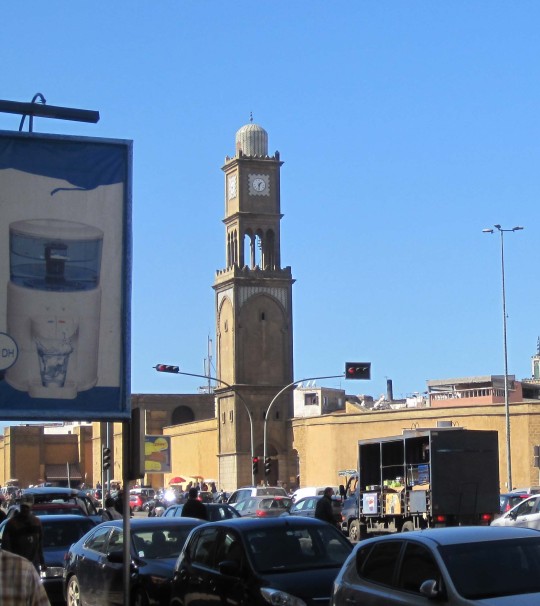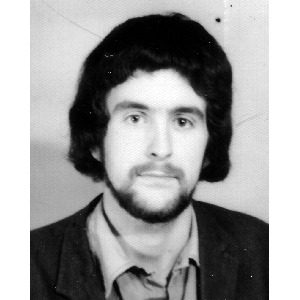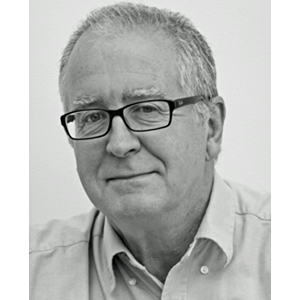Can and Can’t in Casablanca
March 2015
The Road Less Traveled
By Nicolas Ridley
 Mid-evening in a neighbourhood bistro in the sixième. Elizabeth has been listening to me politely but she is puzzled. Although — en principe — she is a firm anglophile, changing her name from ‘Elisabeth’ to ‘Elizabeth’ at an early age, she sometimes finds the English themselves a little odd. The purpose of my present journey, for example, mystifies her completely.
Mid-evening in a neighbourhood bistro in the sixième. Elizabeth has been listening to me politely but she is puzzled. Although — en principe — she is a firm anglophile, changing her name from ‘Elisabeth’ to ‘Elizabeth’ at an early age, she sometimes finds the English themselves a little odd. The purpose of my present journey, for example, mystifies her completely.
—You want to make sense of Morocco? she says. Forget it. You can’t. There’s no sense to be made of Morocco.
—Not so much Morocco, I say. Casablanca. I’d like to remember Casablanca. Or to try to remember it. The place itself. The time I spent there …
—Casablanca has gone, she says. It no longer exists. That Casablanca — the Casablanca when we knew each other — isn’t there. It may never have been there.
I fill Elizabeth’s glass and then my own. In the past she would have lighted a cigarette.
Three hours ago I arrived at the Gare du Nord. Tomorrow — inchallah — I will take the overnight train to Madrid Chamartin, another train to Madrid Atocha, an afternoon train to Algeciras and then … But the details of my journey don’t interest Elizabeth. She cannot understand why — when there are regular scheduled flights from both London and Paris — I should want to travel to Casablanca by train. Trains, in her experience, are slow, dirty and uncomfortable. And she has several friends who have shared with her their tales of unhygienic carriages, stolen jewellery, unwelcome advances from seedy strangers. Nor can she understand why — after more than forty years — I should wish to go back to Casablanca. Elizabeth herself returns only rarely to inspect the family house that she inherited from her parents. She has little affection for the city where, as the daughter of pieds-noirs, she spent her childhood. When she left to pursue her studies in Paris, Oxford and Boston, it was without regret.

Over coffee and digestifs she talks about the fragility of time and place; she discourses on an array of notions; she quotes philosophers, critics and thinkers whose names are unfamiliar to me. She has what I think might be the peculiarly French facility to create abstraction from the concrete, complexity from the plain and simple. But I am as content now to listen to Elizabeth as I was when we drank thé à la menthe in the Old Medina, ate ice-cream in a café in the Avenue de l’Armée Royale, or smoked kif in the courtyard of the villa in the Passage Lacépède.
The evening is over and we are standing in the street. Elizabeth will take a taxi to Neuilly-sur-Seine and I will walk back to the apartment where I am staying.
The taxi arrives. She kisses me briskly and gets in.
—You know what I think, Nicolas? she says, before closing the door. Tu cherches midi à quatorze heures.
She waves from the taxi and is gone and I am left to wonder if she’s right.
***
All day it rained heavily. Through the carriage window, the landscape was drab and damp. The train from Gare Tanger Ville arrived six hours late at Gare Casa Voyageurs. The concourse was dark and crowded and there were no taxis to take me to my hotel near the Gare Casa Port. What am I doing here? Once in every journey we arrive at this point.
In the morning, stepping out from my hotel, I find the rain has stopped.
To my left is a row of shining new hotels and fashionable restaurants preparing for the lunchtime trade. This could be anywhere in the world. But to my right — where it should be — is the brick clock tower in the Old Medina.
I cross the road and find myself outside the language school where for ten months I taught English. I climb the stairs to the first floor. The door is open. No sound. No sign of life. And then the elderly caretaker in a shabby brown djellabah appears. He apologises. His French, he says, is poor. Mine, I assure him, is no better. I explain that — many years ago — I was a teacher at the school. He smiles uncertainly. I ask if the director is present. He isn’t. His wife is ill and the director is spending the day at home. And the teachers? There are no teachers and no students. Today is a holiday. No one is here today. He smiles again. May I look around the school? Certainly I may, he says. He does not offer to accompany me.
And now. Here I am. Standing in ‘my’ classroom. The scarred blackboard. The stacked students’ chairs. A table by the door where we deposited coats and bags. Next to the blackboard, charts displaying the phonetic alphabet and a list of irregular verbs. On the other walls old travel posters: Big Ben and the Houses of Parliament, London buses and black taxicabs, Stonehenge and Avebury, Stratford-upon-Avon, King’s College Cambridge, Edinburgh Castle. Leached images. Frozen in time. Frozen in place. And voices, too, and faces. Sitting in a semi-circle looking up at me. Hopeful and expectant. Fatima, Fawzi, Giselle …
—Bonsoir, monsieur.
—Bonsoir, tout le monde.
And I am back there.
***
A four-week teacher training course in Shaftesbury Avenue has equipped me with the skills I need to teach English as a foreign language and now here I am in Casablanca ready to perform in the classroom — en principe at least.
‘En principe’ is a useful phrase that I have acquired since arriving in Morocco. ‘Inchallah’ is another. They lend a kind of distance to the day-to-day and I employ them frequently. What I don’t know is that I will continue to use both phrases for the rest of my life.
Teaching a full timetable in the Avenue de l’Armée Royale has proved to be very different from our ten-minute teaching practice sessions in London. For these I used to prepare diligently every evening, seated with my notepad at the bar of The Blue Posts in Rupert Street. Then I was intent on impressing my fellow trainees with my virtuosity. Now I must survive three hours twice a week with my zero beginners class.
By Thursday, my students — an amiable assortment of native Moroccans and pieds-noirs — have forgotten most of what I thought I’d taught them on Tuesday. And by the following Tuesday, they have forgotten the rest. In these circumstances rigorous lesson planning seems superfluous.
I decide to re-cast myself in the role of entertainer as much as teacher. This being the case, it’s important that everyone should have a good time. This includes me. It’s how I justify — if ever I feel the need for justification — my afternoons lying under the jacaranda tree in the paved courtyard of our villa in the Passage Lacépède smoking pipes of kif.
This evening I am going to teach ‘can’ and ‘can’t’. (I will be teaching the ‘going to’ future in three weeks’ time.) I know my students haven’t yet mastered prepositions of place or the difference between the simple present (‘I do not teach English in the afternoon. I smoke kif…’) and the present continuous (‘I am not smoking kif this evening. I am teaching English …’). However, it’s a shortcoming they share with many foreign speakers of English and I’m pretty convinced that further explanations and examples from me won’t help them remotely. Also, it’s time to move on or we won’t finish the course book by the end of the summer term. I light another pipe of kif and relax. After all, the grammar of ‘can’ and ‘can’t’ is perfectly straightforward. It can’t be too difficult to teach, can it?
The textbook we are using has plenty of line drawings to illustrate the grammatical point. Here is a picture of a girl swimming. (‘Can Myrtle swim? Yes, she can.’) And beside it a picture of a boy drowning. (‘Can Cyril swim? No, he can’t.’) Another picture of Myrtle with sweet musical notes proceeding from her throat. From Cyril’s mouth comes a stream of asterisks and exclamation marks. (‘Can Myrtle sing? Yes, she can.’ ‘Can Cyril sing? No, he can’t.’) Further down the page there are more pictures: Myrtle playing the piano, Myrtle riding a bicycle, both skills which Cyril has seemingly failed to acquire. (I find myself associating more and more with Cyril.)
We move from the third person to the first and second.
—Can you play the piano? I ask Giselle.
—Yes, I can, she answers. (I believe her.)
—Can you swim? I ask Hasan.
—Yes, I can, he says. (I have my doubts.)
—Can you speak English? I ask Lucette.
—Yes, I can, she replies. (I know for a fact this is untrue, but she smiles so confidently and says the words so sweetly that I can’t bring myself to contradict her.)
—Can you fly a helicopter? I ask Fatima.
—Can you walk on water? I ask Fawzi.
—Can you see Saturn? I ask Benoît.

—Can you paint happiness? I ask Latifa.
They assure me that they can because by now meaning has flown from us and the only purpose of our class has become to sing out, as loudly and joyfully as possible: Yes, I can — Yes, I can — Yes, I can. Which, when I think about it, isn’t the worst way to spend a Tuesday evening here in Casablanca or anywhere else.
***
At home, in England, I bring to mind my evening in the sixième. I try to piece together Elizabeth’s theories of mutability and the impermanence of time and place. The abstract and the concrete. What stays? What fades? The facts that desert us. The facts we remember and misremember. And other facts that can spring to life to delight us …
On a map of Paris I locate the bistro where we ate. I find it is in the Rue du Cherche-Midi. “Tu cherche midi á quatorze heures.” You may be right, Elizabeth. Further along the same road, in the Rue Saint-Jean-Baptiste-de-la-Salle, is the friend’s apartment where I stayed that night. Jean-Baptiste-de-la-Salle? I research the name and find that on May 15th 1950 Jean-Baptiste-de-la-Salle was named the patron saint of teachers. Little — incidental — discoveries. As close to painting happiness as I can find.
© 2015 by Nicolas Ridley. All rights reserved.
Nicolas Ridley has been a random traveller, an uncertain teacher and an accidental publisher. He has lived and worked in Tokyo, Casablanca, Barcelona, Hong Kong and Paris and now lives in Bath where he writes fiction, non-fiction and scripts – very, very slowly – under several different names. Visit his website at http://www.nicolasridley.co.uk/



